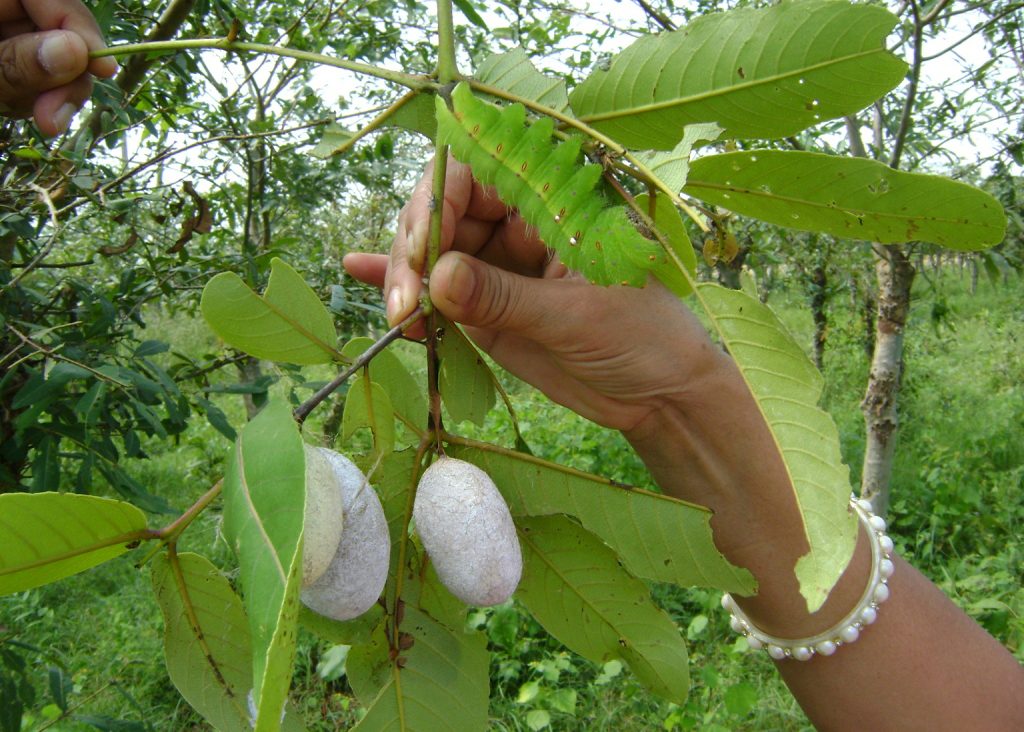Jajpur: Even as three types of silkworms such as Tasar, Mulberry and Eri are cultivated in Jajpur district, sericulture was badly affected by poor production of Tasar cocoons.
According to sources, production of Tasar cocoons was 77,050 kahana (a old unit of measurement), Mulberry cocoons was 24,941 kg and Eri cocoons was 6590 kg in the state during fiscal 2018-19. Jajpur district recorded a production of only 3,386 kahanas of Tasar cocoons in the same period and then famous Sukinda block of the district recorded no production of Mulberry and Eri cocoons.
The district administration shows little interest in promoting sericulture in Jajpur district. The central scheme ‘Silk Samagra’ is effective in the state since 2018-19, for promoting silk production. Nearly 240 Tasar farmers have been given support money of Rs 270.55 lakh under this scheme, of which only one beneficiary of Jajpur district has been given Rs 54,000, Tasar farmers lamented.
The district administration is more instrumental in industrialisation and promotion of mineral-based industries, in Jajpur district. As a result, this has impacted agricultural activities here, local farmers added.
Available water resources including rivers like Brahmani and Baitarani in Jajpur district are being given to industrial units for their use. In sharp contrast, local farmers make arrangement of water on their own for irrigating farmlands. About 14 Tasar farmers belonging to Jantia and Tentulipal villages of Ransol panchayat under Sukinda block are such farmers who suffer from acute water crisis.
The farmers have cultivated Tasar on 25 acres of farmland and about 1,200 of them have been registered under different cooperative societies. In the absence of adequate support of the state government and the district administration, these farmers will pass through tough times.
Tasar cultivation in Pimpudia area has completely stopped and about 300 farmers eke out their living earlier. The state government should take up several welfare measures like training on sericulture, provision for adequate marketing support, arrangement for field-visits and adequate supply of inputs, in order to make them self-sufficient and strengthen their fiscal standings, farmers demanded.
Tasar cultivation is very old in Jajpur district and it is mostly cultivated in natural surroundings of forest. Eri is also very old here and mostly it is cultivated by women and weaker sections of society. Mulberry cultivation is comparatively a new venture in the region.
Silkworms are monophagous and they feed on mulberry leaves. This makes it necessary to plant mulberry for nourishment and rearing of silkworms. However, farmers may grow vegetables as intercrop along with mulberry cultivation. Silkworms are reared by ensuring optimum temperature.
PNN
